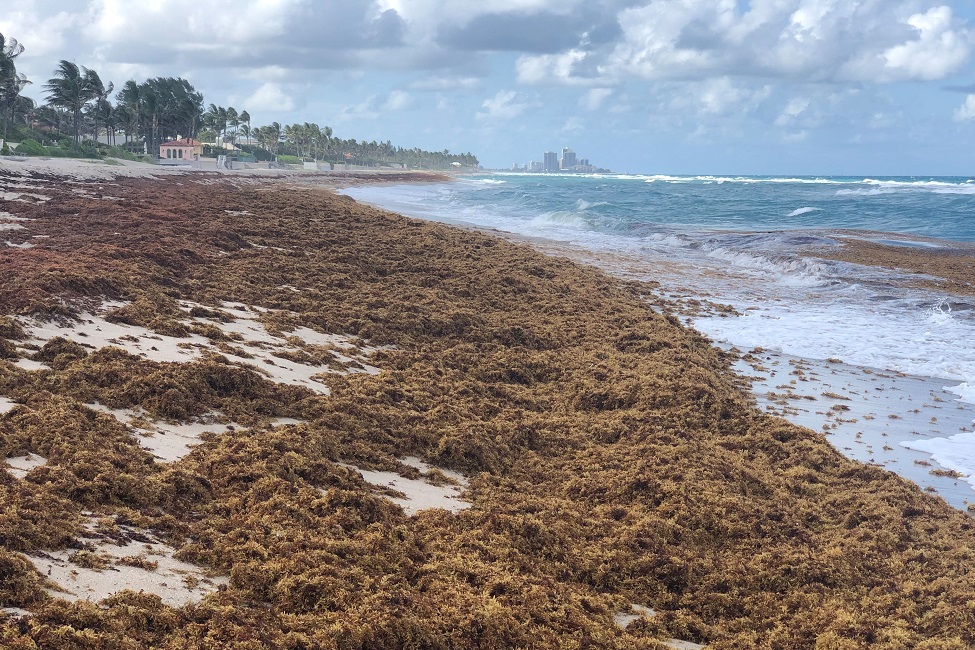
'Pathogen' Storm: Vibrio Bacteria, Sargassum and Plastic Marine Debris
As summer kicks off and efforts are underway to find solutions to repurpose Sargassum, could the interplay between this seaweed, Vibrio bacteria and plastic marine debris pose a triple threat to public health?
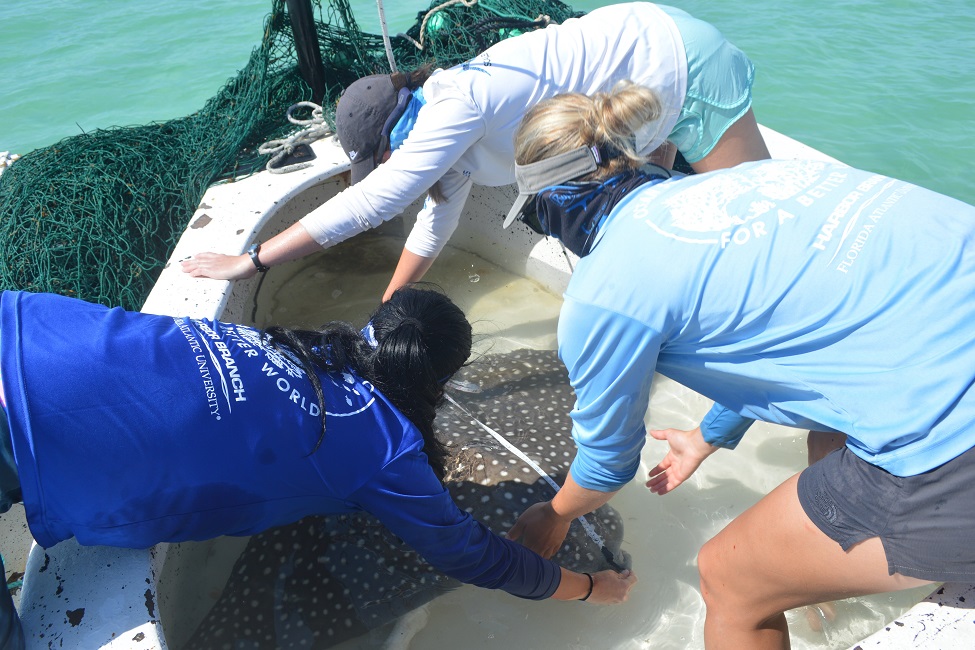
Crushed Clams, Roaming Rays: Acoustic Tags Show Predator Interactions
Inspired by clam fishermen reports, FAU Harbor Branch researchers conducted a study using acoustic telemetry to monitor tagged rays in clam leases along Florida's Atlantic coast over two years.
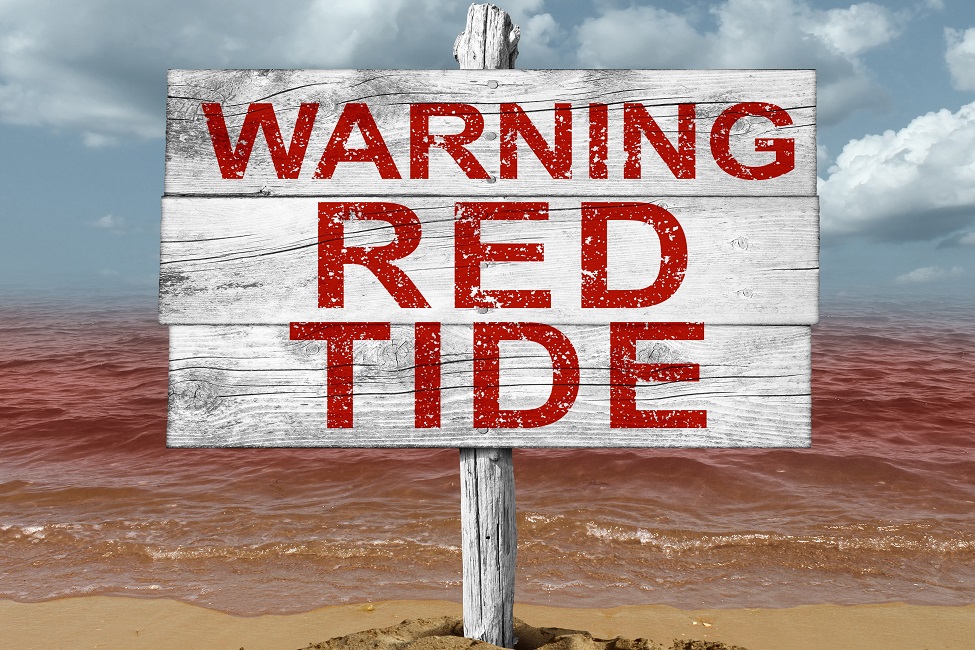
FAU Developed AUTOHOLO Shows Potential as Red Tide Warning System
FAU researchers are the first to use a new autonomous, submersible holographic 3D microscope and imaging system to characterize red tide in the field and break new ground for monitoring harmful algal blooms.
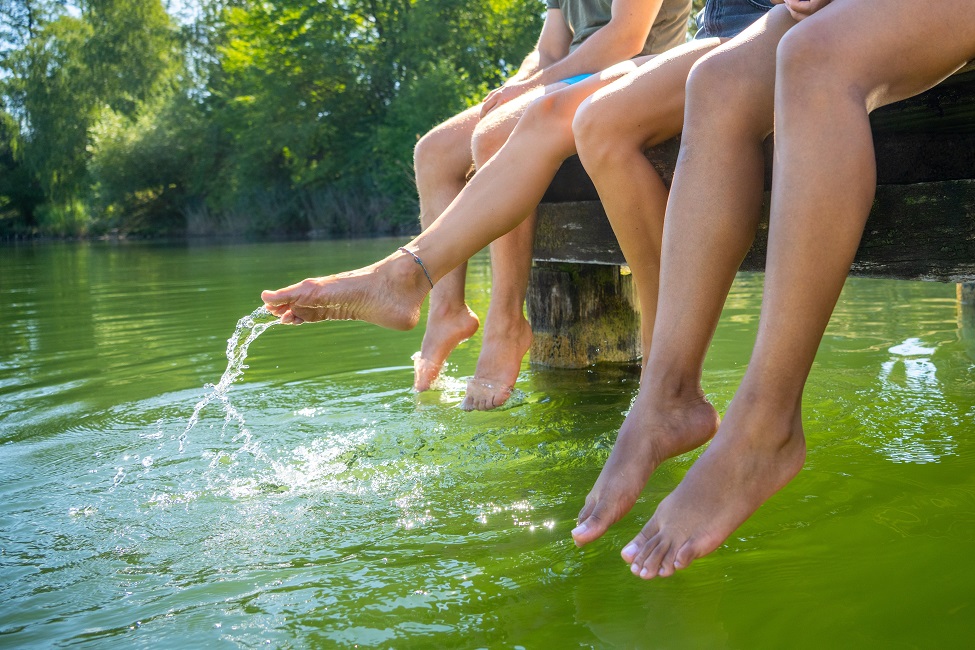
FAU Seeks Participants for Study on Effects of Harmful Algal Blooms
FAU Christine E. Lynn College of Nursing and Harbor Branch Oceanographic Institute researchers are currently seeking participants for a study evaluating potential impacts of exposure to harmful algal blooms.
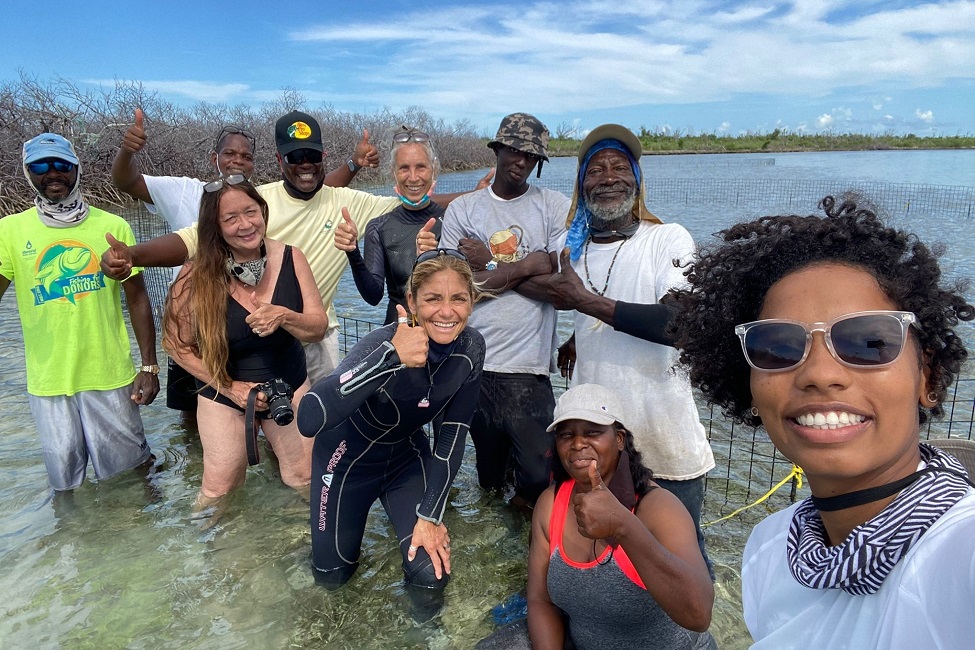
FAU Receives $2.8 Million Gift for Queen Conch Farm in Grand Bahama
FAU's Harbor Branch has received a $2.8 million gift to establish a queen conch hatchery in Grand Bahama. The project is built on a network of collaborators to secure local support and collaboration.
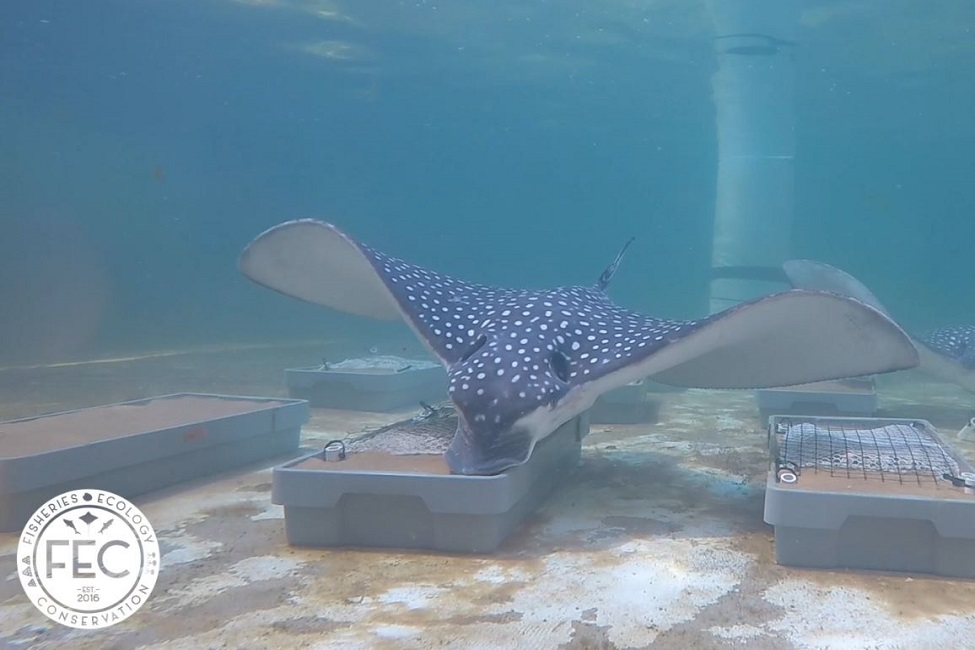
Does Current Shellfish Culture Gear Curb 'Crunching' Rays?
Marine rays like to "crunch" on clams, which can sometimes take a big bite out of clammers' profits. FAU Harbor Branch researchers assessed the efficacy of anti-predator materials on whitespotted eagle rays.
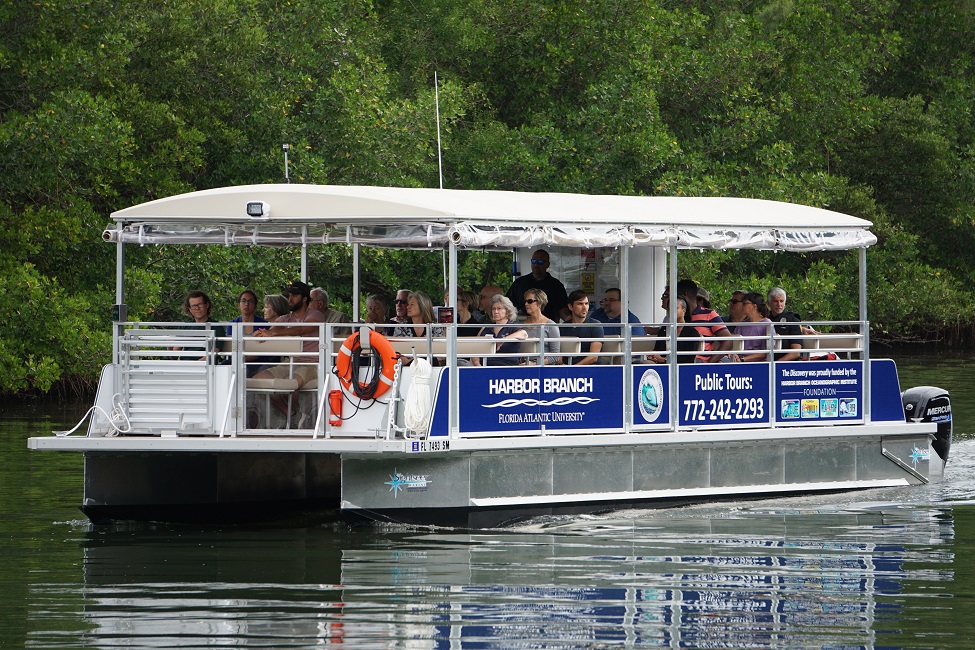
FAU Lands U.S. EPA Grant for 'Hands-on' Indian River Lagoon Field Trip
FAU Harbor Branch has received a $399,963 grant from the U.S. Environmental Protection Agency's (EPA) South Florida Initiative Program to support a new Indian River Lagoon field trip program.
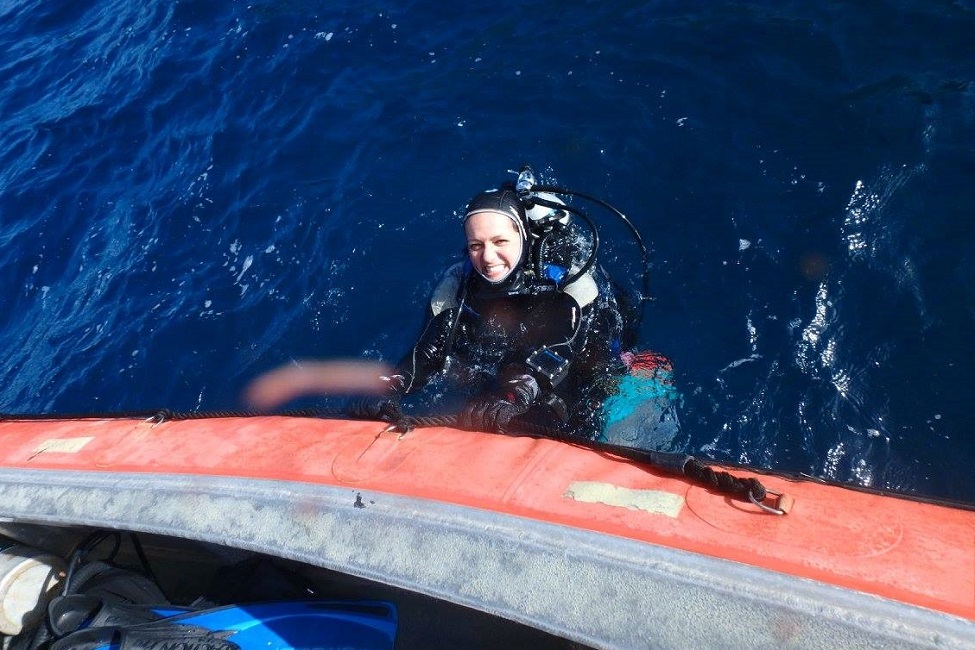
FAU's Andia Chaves Fonnegra, Ph.D., Lands Coveted NSF CAREER Award
With a five-year, $974,100 NSF grant, Andia Chaves Fonnegra, Ph.D., will develop fundamental ecological research to understand the functional ecology and biodiversity patterns in sponge-dominated coral reefs.
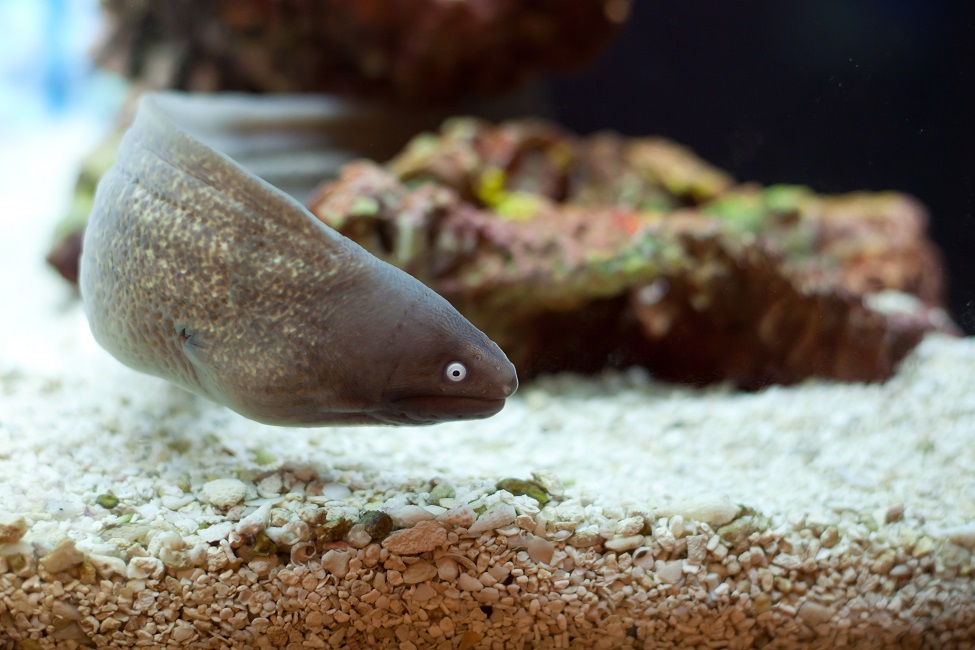
Study Resolves 50-Year Dispute of Teleost Fishes Ancestral Lineage
FAU Harbor Branch's Sahar Mejri, Ph.D., is among a team of scientists to use genome mapping to demonstrate sister groups from a common evolutionary ancestor.
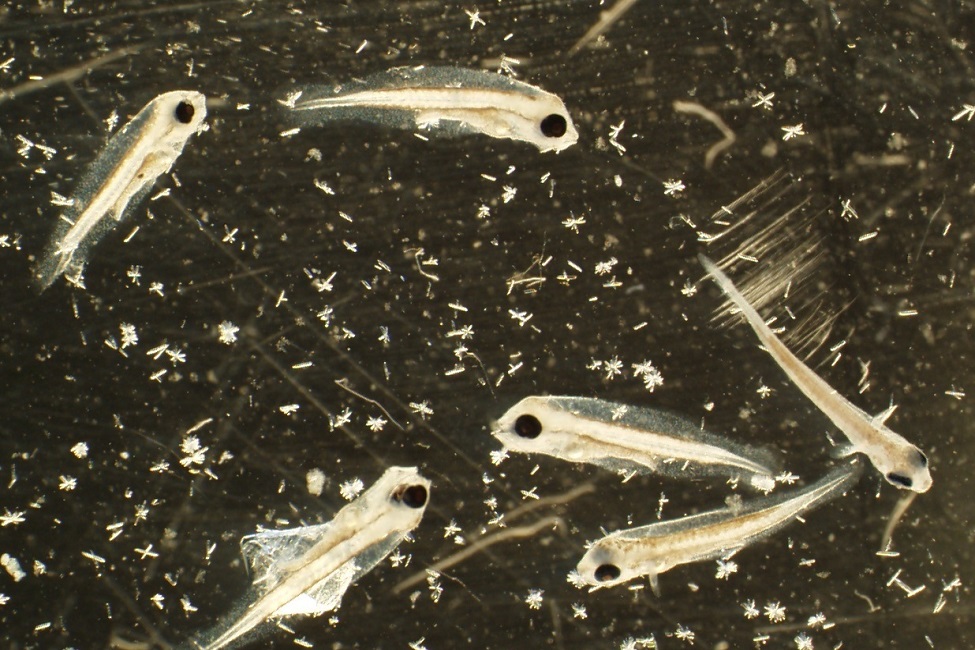
FAU Study Finds Low Salinity Can Work to Culture Florida Pompano Fish
FAU Harbor Branch researchers are the first to conduct a low salinity study on Florida pompano to determine the optimal salinity required to culture juvenile fish from hatch to weaning under on-farm conditions.